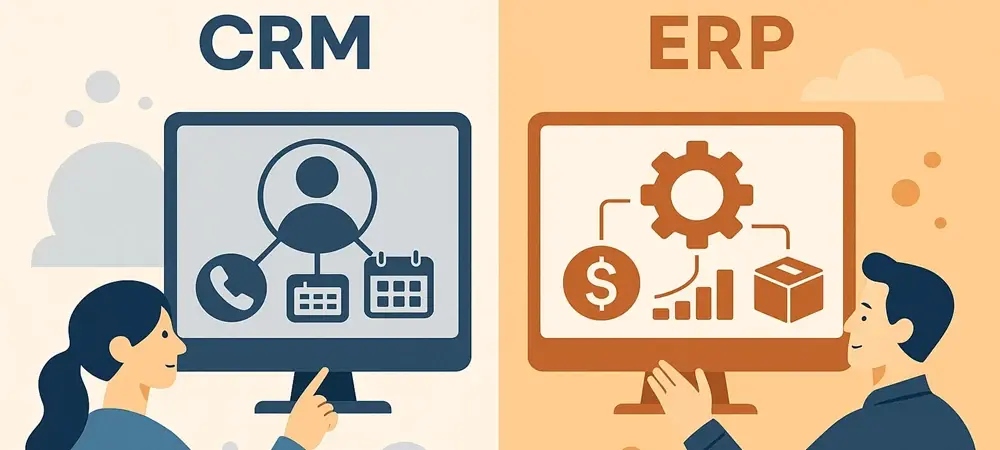In today’s rapidly evolving business environment, companies increasingly depend on technology to streamline operations and enhance the customer experience. Central to this evolution are the CRM (Customer Relationship Management) and ERP (Enterprise Resource Planning) systems. These vital systems serve unique roles yet are interconnected, influencing each other in various operational domains. Understanding the differences and synergies between CRM and ERP is crucial for businesses aiming to optimize efficiency and productivity.
Introduction to CRM and ERP Systems
CRM systems are designed primarily to manage a company’s interactions with current and potential customers. These systems focus on external activities such as marketing, sales, and customer service. By automating and integrating essential customer-related tasks, businesses can effectively improve customer satisfaction and increase sales. Conversely, ERP systems concentrate on internal processes. They streamline varied business operations across finance, supply chain, human resources, and production. An ERP system provides a centralized platform where data from different departments is stored and managed. This integration ensures business processes are synchronized for improved efficiency and compliance with company standards.
Comparative Analysis of CRM and ERP Features
Customer Interaction and Sales Management
CRMs shine in managing and nurturing customer relationships by prioritizing engagement through personalized communication and efficient service management. These systems track customer interactions, automate sales processes, and generate analytics that aids in decision-making. In contrast, ERPs manage backend sales data, such as inventory and order fulfillment, supporting CRM efforts by ensuring customer demands are met promptly.
Operational Management and Resource Planning
An ERP’s strength lies in synchronization. By integrating various departments, it standardizes procedures and resource allocation across the company. This focus on internal synchronization aids in resource planning, making financial management more predictable. A CRM, however, automates and enhances external operations such as prospecting and lead management, allowing sales teams to excel.
Data Integration and Business Insights
Both CRMs and ERPs offer data-driven insights, yet their data scopes differ. CRM systems focus on data related to customer interactions, enabling targeted marketing strategies based on behavior analysis. ERP systems provide a broader view over internal metrics, offering insights into production efficiency, financial health, and overall business performance. When integrated, they create a seamless data flow, eliminating silos and presenting a cohesive view that enhances strategic decision-making and operational efficiency.
Challenges and Considerations of Using CRM and ERP
CRM systems, while transformative, can face challenges such as data privacy concerns, integration compatibility, and the need for continuous training. Businesses must address these to avoid issues with user adoption and data accuracy. ERP systems require considerable resources for implementation and can be complex. Integration processes are often intense and costly, requiring detailed planning and dedicated management to ensure success. Evaluating the total cost of ownership, scalability, and user accessibility is essential for businesses weighing ERP options.
Conclusion and Recommendations
In summary, CRM and ERP systems offer distinct but complementary features, focusing on customer interactions and internal processes, respectively. For businesses seeking to maximize efficiency, the most effective strategy may involve implementing both systems. This integrated approach ensures that customer insights and operational analytics work hand-in-hand, driving informed business strategies and actions.
Looking forward, businesses should consider their specific needs, evaluating the scalability and integration capacity of CRM and ERP solutions. A considered, strategic implementation can ensure both systems contribute effectively, supporting growth and competitive advantage. Tackling integration challenges, investing in user training, and ensuring security can position businesses well for future success. Implemented correctly, these systems do not merely automate tasks but transform business operations, setting a foundation for innovation and sustained progress.

